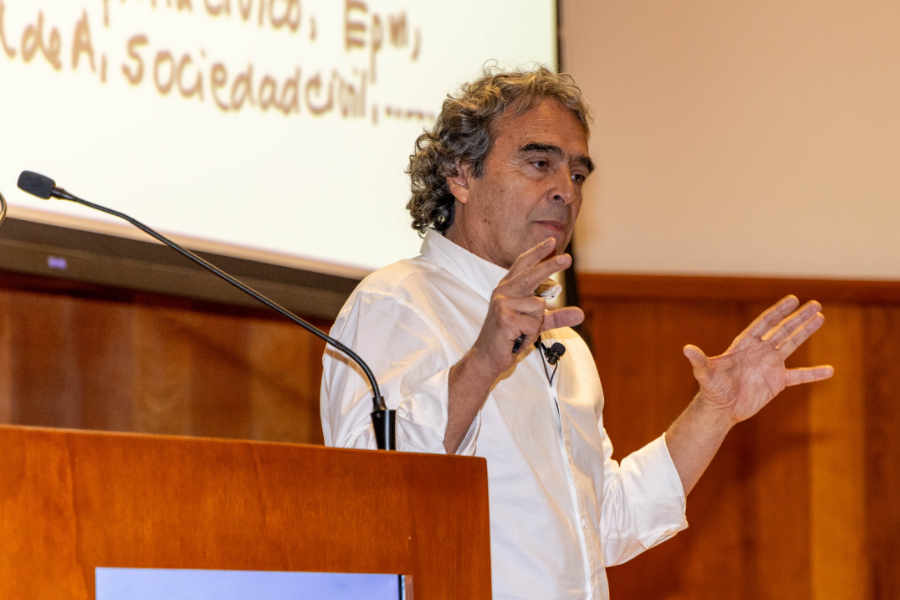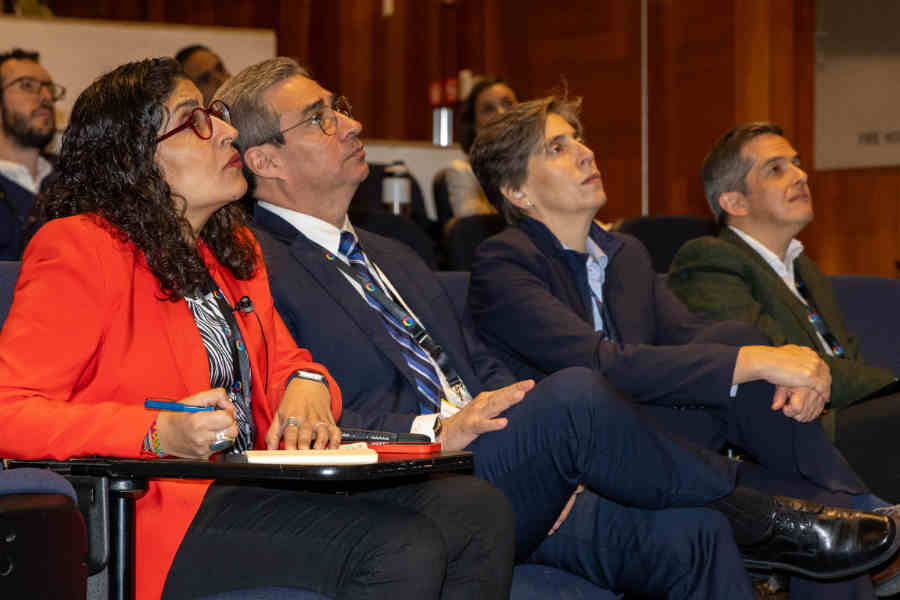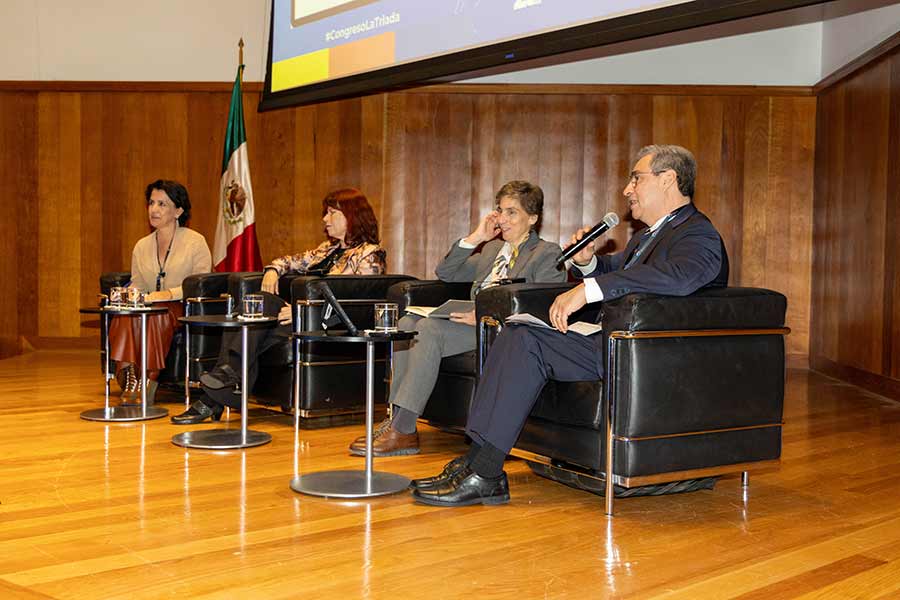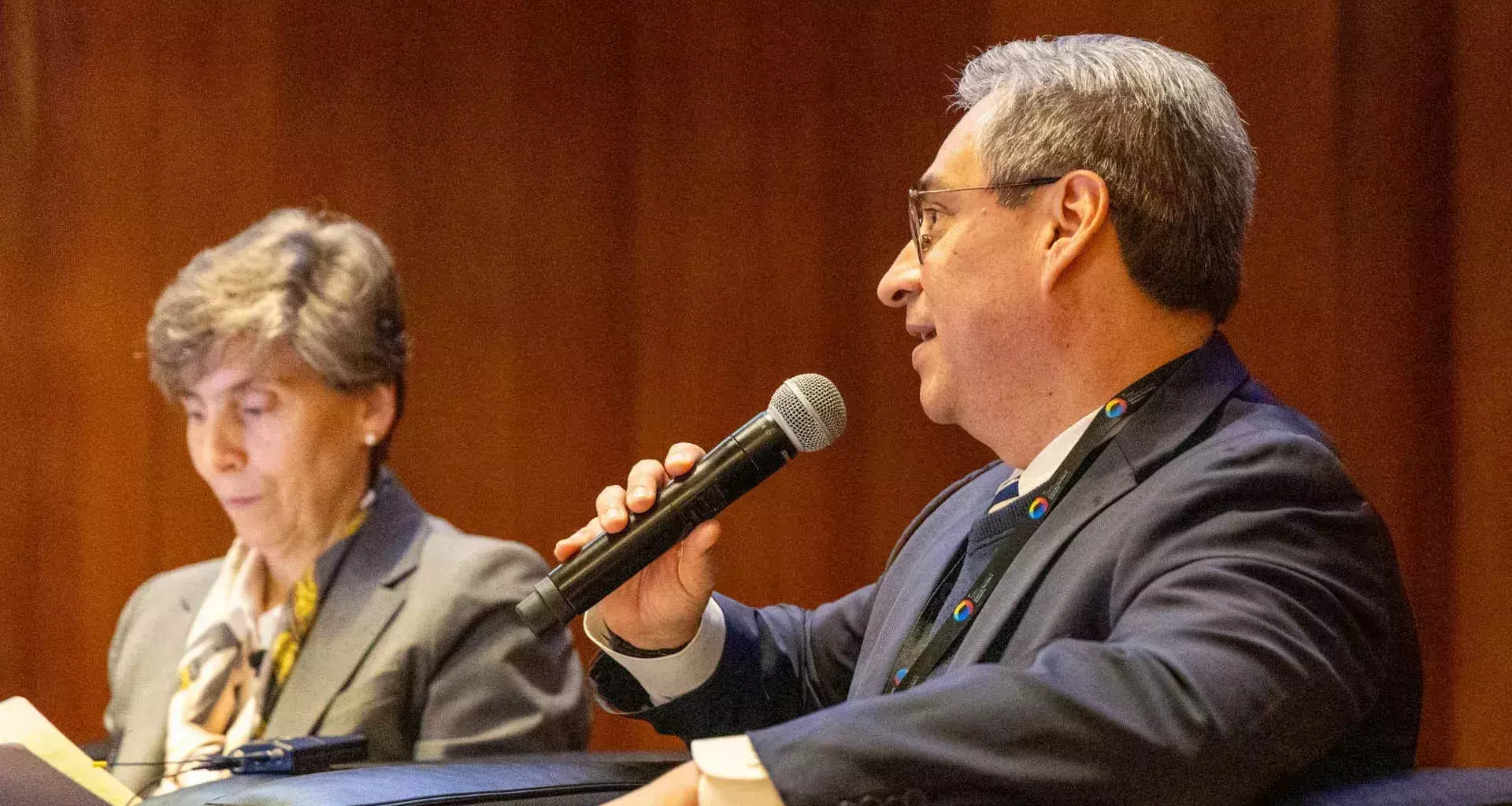During the first Latin American Conference on Social Sciences and Government, academics from La Tríada agreed on the importance of consolidating democracy in the region in order to create better living conditions.
La Tríada, formed in 2018, is an alliance between Tec de Monterrey, the University of Los Andes in Colombia (Uniandes), and the Pontifical Catholic University of Chile.
“These universities, recognized for their educational research and innovation, seek to work together to address the opportunities and challenges of our region,” explained Juan Pablo Murra, Rector for Higher Education at Tec de Monterrey.
“The events that have occurred in the international arena during the first two decades of the 21st century pose new challenges to the development and consolidation of democracy in Latin America,” he said during the inauguration.
At this meeting, academics addressed the different challenges democracy faces in Latin America, such as inequality, poverty, and violence.
Joined by expert speaker Sergio Fajardo from the Faculty of Excellence
As part of the keynote panels at the conference, leading Colombian research professor and politician Sergio Fajardo, from the Tec’s Faculty of Excellence initiative, shared the perspective of elected leaders.
Faculty of Excellence is a Tec de Monterrey initiative to attract 100 of the world’s top thought leaders and researchers to join its national schools as faculty of excellence.
Fajardo, recognized as the founder of the Compromiso Ciudadano (Citizens’ Commitment) party, has had first-hand experience in the world of politics having been elected Mayor of Medellín and Governor of Antioquia.
“In my experience during the campaigns, I realized one thing: democracy is forged by the trust voters have in you and your proposals,” he said.
“Our model is based on this, on the connection we create based on transparency, a sense of collectivity, respect, and hope in an environment that tends towards polarization and fear,” he stressed.
Fajardo recalled how he reached out to voters and the way he focused his political platform around the priorities of citizens.
“As a teacher, one of the pillars of my campaign was always education, but I realized that by reaffirming to people that their priority was now my priority. I created a bond with people who didn’t feel their voice had any value,” he said.
“Democracy isn’t only about people voting or demonstrating, it also implies that we as decision-makers listen to them and do what’s necessary to see them and include them,” he said.
“In my experience during the campaigns, I realized one thing: democracy is forged by the trust voters have in you and your proposals.”

Highlighting the importance of talking about democracy in Latin America
According to Dr. Uuc-kib Espadas, advisor to the National Electoral Institute, democracy in the region is strongly linked to the challenges of inequality, poverty, and representation that Latin American people experience on a daily basis.
“The constant distance between the voter and those they elect shows us a reality in which people decidedly say they prefer governments that satisfy their basic needs over democratic governments,” said Espadas.
“This can lead to disenchantment, especially in poor countries, a situation that translates into people turning away from the democratic process in various ways and culminates in them supporting extremist and authoritarian movements,” he added.
The speaker also pointed out the existence of an “inclusive” democracy that, although it practices the principle of parity in several Latin American countries, also demonstrates opportunities for improvement in terms of representation.
He pointed out that Latin American democracies face the constant obstacle of not being able to provide the representation that citizens seek and become mired in the representation that politicians perceive they need.
“It’s essential we discuss the foundations of our democracy, the characteristics we want to move forward with, and the way we’re going to achieve this process because if we don’t, democracy will die,” the expert said.
“How are we going to achieve this? By overcoming the democratic irrelevancy of the vote, establishing a legitimate government, and providing the real possibility of living in better conditions,” he pointed out.
Ignacio Sánchez Díaz, Rector of the Pontifical Catholic University of Chile, stressed the importance of making Latin America’s fragile democracies visible and discussing them in order to mobilize decision-makers to make structural changes.
Electoral affinity and trust in democratic transformation
From the perspective of Mariane Krause, Dean of the Faculty of Social Sciences at the Pontifical Catholic University of Chile, the fragmentation caused by the existence of multiple parties and movements has had an impact on the voting process.
“Citizens are getting tired and don’t believe in the power of the vote because there’s a severe lack of trust in the future,” explained Dr. Krause.
Miguel García Sánchez, associate professor and Director of the Department of Science and Politics and Global Studies at Uniandes, asks us to study the relationship between political leaders and voters.
“Citizens who have no affinity towards any of the politicians may not exercise democracy or may opt for the majority opinion. We need to understand that public opinion is capable of influencing the electoral process,” said García.
María Margarita Zuleta, Director of Uniandes’ School of Government, added that this fragmentation of ideologies and affinities is in turn part of a serious delegitimization of electoral processes.
Regarding voters’ perception of political candidates, Zuleta mentioned the role played by promises of change and expectations when these are not fulfilled by previous decision makers.
“When popular rulers come to power and don’t fulfill what they promised, we see how resentment towards those leaders turns into a punishment vote in the following elections for their opponents,” she said.
Public opinion, empathy, and peace talks, a contemporary challenge
While experts such as Miguel García Sánchez, a professor at the University of the Andes, acknowledged the differences in Latin American contexts, he points out the issue of violence and civil mobilization.
Discussing the Colombian case, the researcher spoke about the peace talks with the FARC and the public plebiscite that was part of this process.
“With plebiscites of this type, which involve civil society and public security, we can see a sign of active democracy that comes from putting ourselves in the role of the victims,” García said.
“Living through a wave of violence or a violent event that the population empathizes with can serve as a catalyst for citizens to mobilize and act together,” he added.
The speaker concluded that the 2016 peace agreement not only served as a means to end the conflict but was also a compendium of public policies focused on correcting structural flaws in Colombian democracy.
Research professor Rebecca Bell-Martin, a professor at Tec de Monterrey, also points out that the human connection to these cases of violence is a sign of democracy built from the bottom up.
The Colombian case can be compared to Mexico’s experience with drug trafficking, which showed signs of citizen democracy to seek justice.
Latin American Conference on Social Sciences and Government
The purpose of this event was to reflect on and learn about proposals for the challenges facing democracy in Latin America, discussion of alternatives by relevant stakeholders, knowledge transfer, and networking.
This conference was held from November 22 to 24 at the Tec’s School of Government and Public Transformation in San Pedro Garza García, Nuevo León.
YOU MAY ALSO BE INTERESTED IN:







